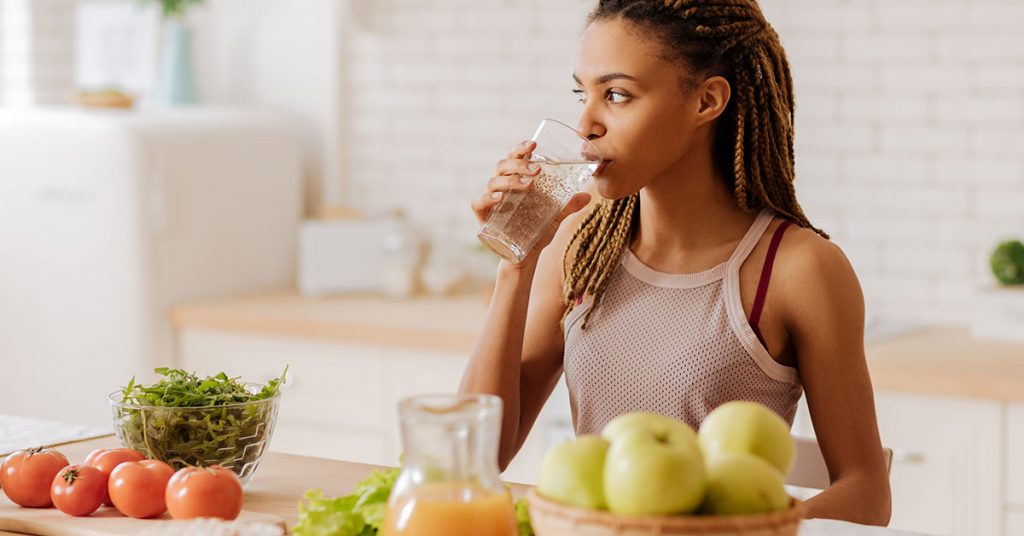
For those who have experienced the agonizing condition that is a kidney stone, preventing its recurrence becomes a top priority. But what if you could take control of your kidney health and reduce the risk of kidney stone formation through simple dietary adjustments? There are a number of ways changing your diet to prevent kidney stones can benefit your overall well-being.
Kidney Stone Prevention
According to the National Kidney Foundation, more than half a million people go to the emergency room for kidney stone problems. While these stones can either be passed on their own or removed with treatment, you might want to take steps to prevent kidney stones. One way you can be proactive and prevent kidney stones is by changing your diet. Alliance Urology has put together the information you need to know when it comes to changing your diet to prevent kidney stones.
About Kidney Stones
Kidney stones are hard objects that are made up of chemicals that can be found in urine. Because it is intended to remove excess water and impurities from our bodies, our urine has many different types of wastes dissolved in it. The kidneys usually eliminate these waste products, and they are washed out with the liquid. However, sometimes things are out of balance.
When there is too much waste and too little liquid, those waste chemicals can form crystals. The crystals then attract other things that join together and form a solid object that continues to get longer until it is passed. That hard object is a kidney stone. Kidney stones can cause symptoms like:
- Severe pain on either side of the lower back
- Blood in the urine
- Vague pain or a stomach ache that doesn’t go away
- Nausea or vomiting
- Fever and chills
- Cloudy or bad-smelling urine
Types of Kidney Stones
There are four types of kidney stones that differ based on the chemicals that they are made up of. The four types of kidney stones are:
- Calcium oxalate kidney stones
- Uric acid kidney stones
- Struvite kidney stones
- Cystine kidney stones
Changing Your Diet To Prevent Kidney Stones
The foods you need to eat, as well as the foods you need to avoid, will depend on the type of kidney stones you get. Your doctor can give you more instructions about making good food choices, but for now, you can consult this basic guide to find out how to change your diet to prevent kidney stones.
Drink Water
The National Institute of Diabetes and Digestive and Kidney Diseases (NIDDK) suggests that if you have kidney stones, drinking enough liquid is the most important thing you can do to prevent kidney stones. You should mostly stick to water and avoid colas and other drinks with too much sugar or sodium. They recommend that unless you have kidney failure, you need to get six to eight 8 oz. glasses of water a day. It’s important to talk to your urologist first to find out how much water you should have based on your individual circumstances.
Reduce Oxalate
If you are prone to calcium oxalate stones, then the best way to change your diet to prevent kidney stones is to reduce the oxalate you consume. Common foods that contain this chemical include nuts and nut products, peanuts (which are legumes, not nuts), spinach, rhubarb, and wheat bran.
Reduce Sodium
Eating a lot of sodium increases your chances of getting kidney stones. So avoid fast food, canned food, packaged food, and processed food. Additionally, when purchasing food at the grocery store, check the ingredients list to see the amount of sodium in what you purchase. Premade items and frozen meals tend to contain high amounts of sodium.
Limit Animal Protein
Eating protein that comes from animals can increase your chances of developing kidney stones, especially if you have a history of them. In the US, we commonly get protein from chicken, pork, beef, fish, shellfish, and dairy products. While limiting animal protein is a good way to change your diet to prevent kidney stones, you still need to get plenty of protein.
Luckily, there are many plant-based foods that have protein, such as beans, tofu, lentils, nuts, and seeds. Your doctor can go over how much protein you need to get each day and the best sources to use. Also, be sure to ask about what to avoid based on the type of stones you have. For instance, you don’t want to get your protein from tree nuts or peanuts if you have oxalate stones.
Get Plenty of Calcium from Food
Because many kidney stones contain calcium, you may think you should stay away from foods that are high in calcium. However, you should get plenty of calcium from what you eat (rather than supplements). If you have the right amount of calcium, it can block substances that may lead to stones.
Alliance Urology Specialists is home to an expert team of urologists who are committed to providing comprehensive care to adults with urologic disorders, such as kidney stones. If you are looking for more ways to prevent kidney stones, call our office at (336) 274-1114 to make an appointment.

